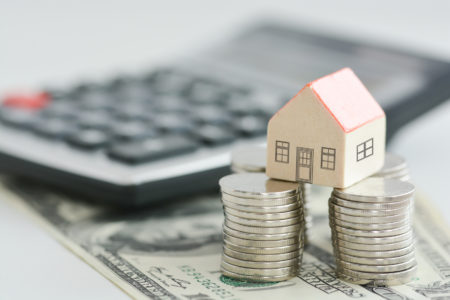If you’re a property owner and planning to take chances to rent out your investment property, you may want to consider hiring a professional property manager to manage it.
Becoming a landlord may not be an option for some. With the variety of landlord responsibilities that comes with property and tenant management, hiring expert rental property managers to delegate all tasks related to rental property management will definitely lessen the burden.
To know whether hiring property managers is for you, let us help you decide with these checklists:
- Do you own one or more properties?
- Is the property manager worth the spend?
- Do they take care of the ins and outs of managing your rental property?
HOW MANY PROPERTIES DO YOU HAVE?
Begin by asking yourself what your property management needs really are. Do you own one or more properties? If you’re a remote real estate investor and owns more than one property, you’ll definitely need a local management company to take care of the tenants and the day-to-day property issues. On the other hand, investors who own rental property in the same area they live in may decide to try managing the property on their own.
COMMON PROPERTY MANAGER CHARGES
A property management company will help landlords manage their rental property for a price, and as a baseline, a typical residential property management firm charges between 8 – 12% of the monthly rental value of the property, plus expenses. If you don’t want to feel like you’re being nickeled-and-dimed each month with a list of confusing fees, here’s an inside gist of what sums up the services a property management company is really covering:
Initial Setup Fee
Not all companies charge this fee, but if they do, it is usually $500 or less. It is an onboarding fee, which covers initial inspection on the condition of your property, or introductory communication to notify tenants that they will be managing the property.
Monthly Management Fee
This is the primary fee you’ll pay each month. The contract you sign with the property manager will specify how this fee is calculated and what services the fee includes. It may cover the day-to-day management of your property, such as collecting and processing rent, communicating with tenants, conducting annual property inspections, coordinating repairs, and responding to emergency maintenance calls. It is usually a percentage of the gross collected rents, but you’ll also find rental property managers who charge a monthly flat fee (a specific dollar amount that you pay the property manager each month). Some companies charge a higher monthly management fee, but it may be more inclusive, so do not be put off by a higher initial fee until you understand what is included in this fee.
TIP: Make sure your contract with the property manager states that the fee is for rent collected rather than rent due. Otherwise, the property manager will be collecting money even if the tenants are not paying their rent.
Reserve Repair Fund
This is a separate account that the landlord puts money in for necessary repairs on the property.
Leasing, and Lease-renewal fee/ Early Termination Fee
The fee covers the time it takes to make any adjustments to the lease or any unforeseen charges —including performing a Comparative Market Analysis to recommend rent changes (if any)—and obtain the tenant’s signature. It is typically around $200 or less. If the tenant is evicted or breaks the lease before the end of the one-year term, some property management firms will provide a full or prorated refund. You may only be responsible for paying one month of additional management fees or you could be taken to court for breach of contract.
Maintenance Fee
Generally included as part of the monthly management fee. This could include keeping common areas clean, taking out garbage and snow and leaf removal. If a specific repair must be made, the cost of the repair will be deducted from the reserve repair fund, which was mentioned above.
Vacancy Fee
A property management contract could include a fee for vacancies. This could be a one-time fee of one month’s rent upfront or it could be a fee per vacant unit, such as $50 per unit.
Tenant Placement Fee
This includes advertising cost to find a tenant, tenant screening, move-in procedures, and preparing the lease agreement.
Eviction Fee
If you want a property manager to handle tenant evictions, you will have to pay for it. Expect to pay a few hundred dollars for each eviction, plus any associated court costs.
WHAT DO PROPERTY MANAGERS DO?
Tenant Screening Services
You can’t just let any prospective tenant live in your rental property without scrutinizing their background. Property Managers do background and credit checks, employment status, current income, and all other screening information that’s essential to let you have peace of mind while your space is rented out.
Rent Collection
Property Managers do everything for you, including managing and collecting rents from your tenant. This means you need not go over the hassle of notifying your tenant’s due or be stressed if they didn’t pay on time. Property Managers have it all covered.
Advertising and Marketing
If you have signed with property management companies, you need not worry about who will rent your place. Property managers can let you have your property occupied in a span of days through their listings posted on site or collaterals printed. You’ll definitely give your properties maximum exposure, without you having to lift a finger as they work on advertising and marketing on your behalf.
Repairs and Maintenance
Whatever repairs you need, it is their job to handle it. They’ll have third-party contractors and have all your worries about repairs and maintenance get done.



